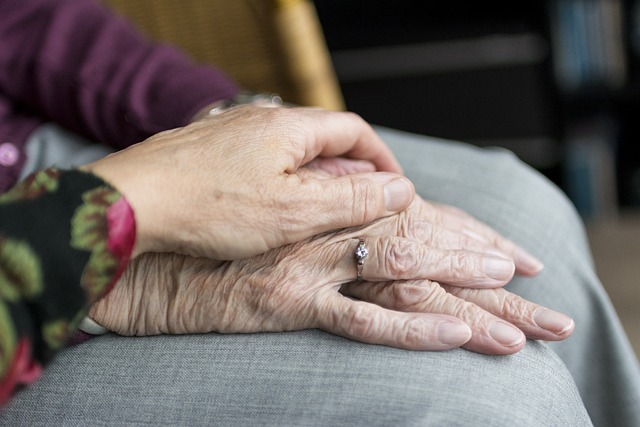Can Medicare Help With House Cleaning? What Seniors Should Know
Household chores can feel like a challenge, especially during retirement. Many people wonder: does Medicare cover help with cleaning? The short answer is that original Medicare generally does not, but certain Medicare Advantage plans may provide limited chore support as an added benefit. Understanding the scope of coverage can help seniors plan for a more comfortable and stress-free lifestyle.

As people age, maintaining a clean and safe home environment becomes increasingly important for health and well-being. However, physical limitations or health conditions can make routine housekeeping tasks challenging. This raises an important question for many older adults: does Medicare provide any coverage for house cleaning services?
The answer is more nuanced than a simple yes or no. While Medicare doesn’t typically cover non-medical housekeeping as a standalone service, there are specific situations and program variations where some home assistance may be available. Understanding these distinctions can help seniors and their families make informed decisions about care options.
Medicare’s Traditional Role
Original Medicare, which includes Part A (hospital insurance) and Part B (medical insurance), is designed primarily to cover medically necessary services. This includes doctor visits, hospital stays, medical equipment, and certain preventive care services. When it comes to home care, Medicare Part A may cover home health services, but only under strict conditions.
For Medicare to cover home health care, a beneficiary must be homebound, require skilled nursing care or therapy services, and have these services ordered by a doctor. The covered services typically include skilled nursing, physical therapy, occupational therapy, and speech-language pathology. However, these services focus on medical treatment and rehabilitation rather than daily living assistance.
Custodial care, which includes help with activities of daily living like bathing, dressing, meal preparation, and housekeeping, is generally not covered by traditional Medicare. This means routine house cleaning, laundry, grocery shopping, and similar non-medical tasks fall outside the scope of standard Medicare benefits. Beneficiaries seeking these services would need to pay out-of-pocket or explore alternative coverage options.
The Potential of Medicare Advantage Plans
Medicare Advantage Plans, also known as Medicare Part C, are offered by private insurance companies approved by Medicare. These plans must cover everything Original Medicare covers, but many go beyond the basic benefits to include additional services. This is where seniors may find some coverage for home-related assistance.
Some Medicare Advantage Plans offer supplemental benefits that can include limited homemaker services, personal care assistance, or even meal delivery programs. These additional benefits vary significantly by plan and location. Certain plans specifically designed for individuals with chronic conditions or functional limitations may include more comprehensive home support services.
It’s important to note that even when Medicare Advantage Plans offer these benefits, they typically come with limitations. Coverage might be restricted to a certain number of hours per week or month, may require prior authorization, or might only be available to beneficiaries who meet specific health criteria. Seniors interested in these benefits should carefully review plan documents during the annual enrollment period and ask detailed questions about what services are included.
Bridging Health Care and Home Care
The connection between a clean, safe home environment and overall health outcomes has become increasingly recognized in recent years. Falls, infections, and other health complications can result from poorly maintained living spaces, particularly for seniors with mobility issues or compromised immune systems.
Some Medicare programs and demonstration projects have begun exploring ways to address social determinants of health, which include housing conditions. For example, certain Special Needs Plans (SNPs) under Medicare Advantage may provide more comprehensive support services for beneficiaries with specific diseases or characteristics. These plans sometimes include care coordination services that help arrange for home modifications or cleaning assistance when medically necessary.
Additionally, Medicaid, which is separate from Medicare but often works alongside it for dual-eligible beneficiaries, may cover some home care services that Medicare doesn’t. Many states offer Medicaid waiver programs that provide home and community-based services, including housekeeping assistance, to help seniors remain in their homes rather than moving to institutional care settings. Eligibility and covered services vary by state.
Understanding Your Coverage Options
For seniors seeking help with house cleaning and home maintenance, several pathways exist beyond traditional Medicare. First, reviewing all available Medicare Advantage Plans in your area during open enrollment can reveal plans with homemaker benefits. Comparing plan benefits, costs, and provider networks is essential.
Second, exploring Medicaid eligibility may open doors to additional home care services. Even if income or assets seem too high for standard Medicaid, some states have programs specifically for seniors needing long-term care that use different eligibility criteria. Consulting with a Medicaid planning specialist or local Area Agency on Aging can provide clarity.
Third, veterans may qualify for benefits through the Department of Veterans Affairs that include home care services. The VA’s Aid and Attendance benefit can help cover costs for veterans or surviving spouses who need assistance with daily activities, which may include housekeeping services.
Typical Costs for Home Cleaning Services
When Medicare or other insurance doesn’t cover housekeeping services, seniors must budget for these expenses privately. Understanding typical costs helps with financial planning. Home cleaning services generally charge either hourly rates or flat fees based on home size and service scope.
According to industry data, basic house cleaning services typically range from $25 to $50 per hour, with an average of around $35 per hour. For a standard cleaning of a small to medium-sized home, expect to pay between $100 and $200 per visit. Deep cleaning services, which are more thorough and time-intensive, can cost $200 to $400 or more.
Some companies offer specialized senior housekeeping services that may include additional assistance with organization, laundry, or light meal preparation. These services often cost slightly more, typically $30 to $60 per hour, but provide more comprehensive support tailored to older adults’ needs.
| Service Type | Frequency | Typical Cost Range |
|---|---|---|
| Basic House Cleaning | Weekly | $100 - $150 per visit |
| Basic House Cleaning | Bi-weekly | $120 - $180 per visit |
| Deep Cleaning | One-time or Monthly | $200 - $400 per visit |
| Senior Companion/Housekeeping | Hourly | $30 - $60 per hour |
| Move-in/Move-out Cleaning | One-time | $300 - $600 |
Prices, rates, or cost estimates mentioned in this article are based on the latest available information but may change over time. Independent research is advised before making financial decisions.
Making Informed Decisions
Navigating the intersection of Medicare coverage and home care needs requires research and planning. While traditional Medicare offers limited help with non-medical housekeeping, alternatives exist through Medicare Advantage Plans, Medicaid, veteran benefits, and private pay options. Seniors should assess their specific needs, review all available programs, and consult with benefits counselors or elder care specialists to identify the most appropriate and affordable solutions.
Maintaining a clean and safe home environment is crucial for healthy aging. By understanding what Medicare covers and exploring supplemental options, seniors can create a comprehensive care plan that supports their independence and well-being. Taking time to investigate all possibilities ensures that necessary services are accessible without unnecessary financial strain.
This article is for informational purposes only and should not be considered medical advice. Please consult a qualified healthcare professional for personalized guidance and treatment.




